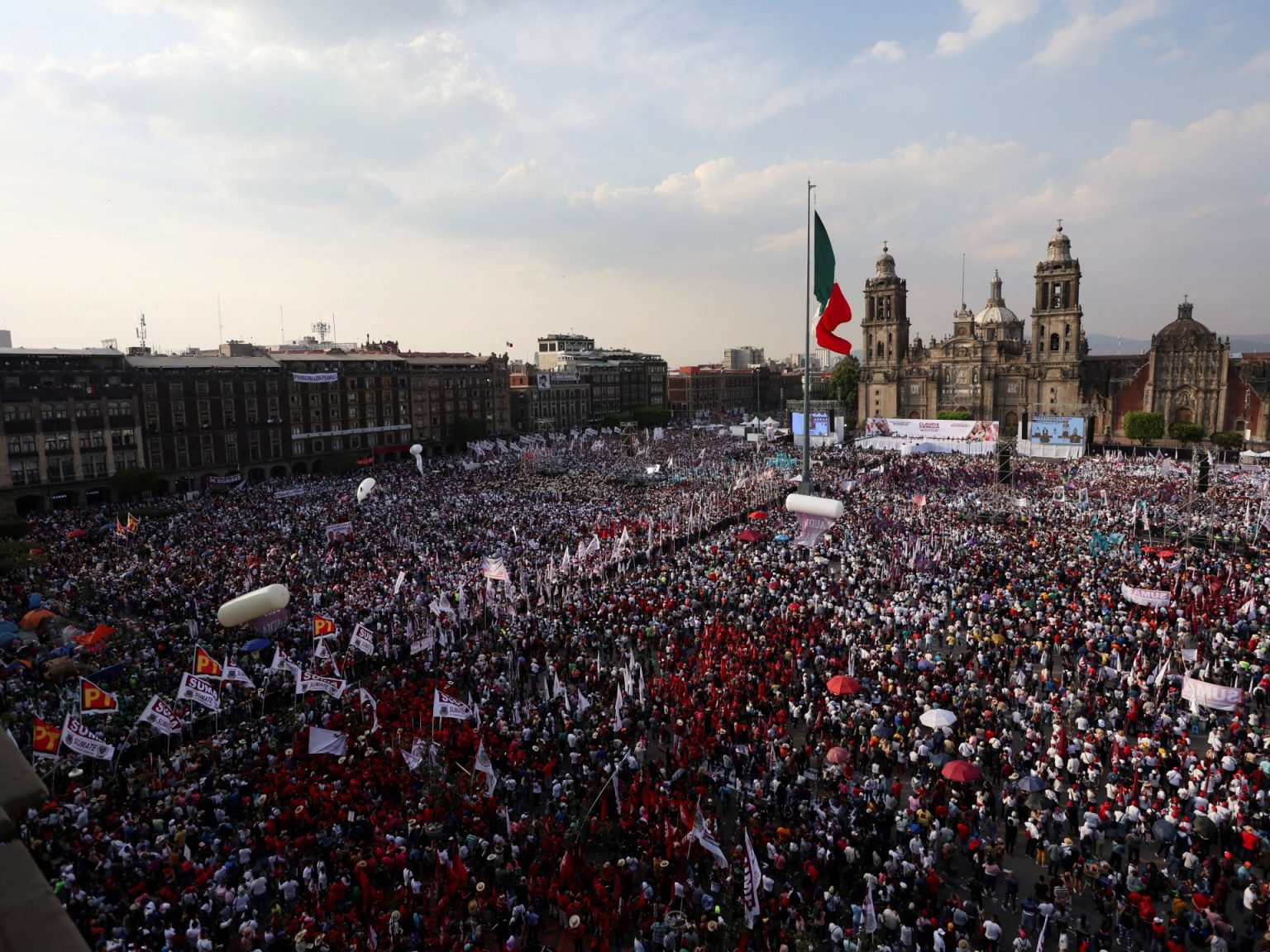On June 2, 2024, Mexico is gearing up for its largest election to date, with voters having the opportunity to choose more than 20,700 positions at the federal and local levels, including the presidency. Outgoing president Andres Manuel Lopez Obrador, also known as AMLO, is one of the most popular leaders in Mexico’s modern history, and the race is heating up as candidates vie to succeed him. Scientist and former Mexico City Mayor Claudia Sheinbaum, representing the Morena party, is competing against conservative rival Xochitl Galvez for the presidency. If either Sheinbaum or Galvez wins, it will mark a historic moment, as Mexico has never had a woman as president.
Around 100 million Mexican citizens are expected to participate in this election, marking a significant increase in voter turnout compared to previous years. The electoral process will take place at 170,000 polling stations across the country, with voters required to present a voter identification card. Mexico’s large diaspora population, over 11 million people living abroad, will also have the opportunity to vote through online, postal, or in-person methods at Mexican consulates. The election will be closely monitored by the Instituto Nacional Electoral (INE), with real-time statistics provided during the vote counting process.
Two main coalitions have formed for the 2024 election, one conservative and the other left-leaning, each composed of several political parties. The conservative coalition, “Strength and Heart for Mexico,” includes parties like the National Action Party (PAN) and Institutional Revolutionary Party (PRI), while the left-leaning coalition, “Let’s Keep Making History,” features Morena as its key party. The emergence of these coalitions reflects the impact AMLO has had on redefining the political landscape in Mexico. Sheinbaum and Galvez are the presidential candidates for their respective coalitions, with Sheinbaum leading in the polls by more than 20 points.
Major issues in the campaign include security, social programs, and corruption, with voters viewing the election as a referendum on AMLO’s presidency. Sheinbaum has promised to continue AMLO’s policies of social program expansion and infrastructure projects, while Galvez has taken a tougher stance on security, critiquing AMLO’s approach of addressing crime with hugs rather than bullets. The ongoing violence in the country has also influenced the campaign, with multiple mayoral candidates killed in targeted attacks blamed on drug cartels and organized crime.
Lopez Obrador’s legacy as president has been a mixed bag, with his efforts to address poverty earning him popularity, while also facing criticism for initiatives viewed as undermining the country’s institutions. Despite his high approval ratings, AMLO is unable to run for a second term due to constitutional limitations on presidential reelection in Mexico. As the election approaches, the Mexican people are preparing to elect a new leader and set the course for the country’s future, with issues of security, social welfare, and governance at the forefront of voters’ minds.


